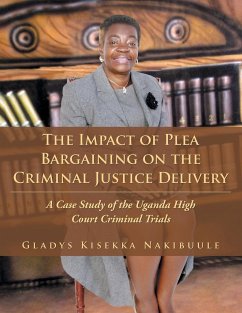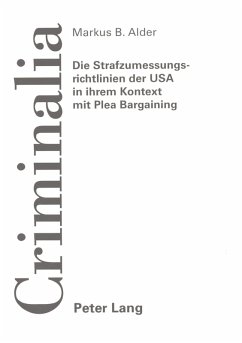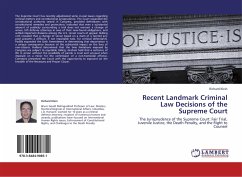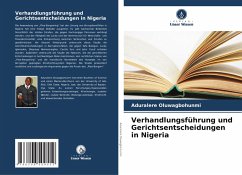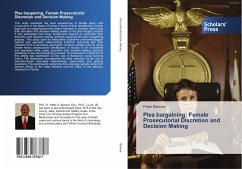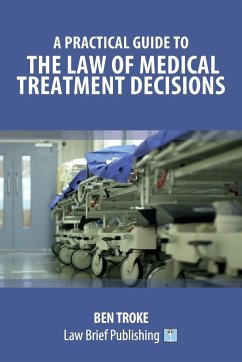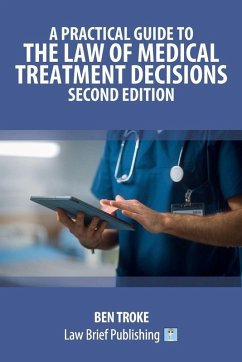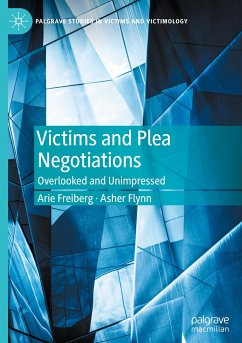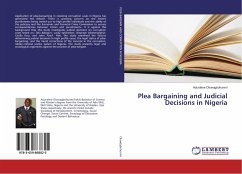
Plea Bargaining and Judicial Decisions in Nigeria
Versandkostenfrei!
Versandfertig in 6-10 Tagen
37,99 €
inkl. MwSt.

PAYBACK Punkte
19 °P sammeln!
Application of plea-bargaining in resolving corruption cases in Nigeria has generated hot debate. There is growing concern on the lenient punishments being meted out to high profile individuals and the ability of the judiciary and the Economic and Financial Crime Commission to ensure correspondences between crimes and punishments. It is against this background that this study investigates judicial decisions on corruption cases levied on; Tafa Balogun; Lucky Igbinedon; Diepreye Alaimeisaighia; Cecilia Ibru; and John Yusuf. Also, the study examined the factors determining judicial decisions in h...
Application of plea-bargaining in resolving corruption cases in Nigeria has generated hot debate. There is growing concern on the lenient punishments being meted out to high profile individuals and the ability of the judiciary and the Economic and Financial Crime Commission to ensure correspondences between crimes and punishments. It is against this background that this study investigates judicial decisions on corruption cases levied on; Tafa Balogun; Lucky Igbinedon; Diepreye Alaimeisaighia; Cecilia Ibru; and John Yusuf. Also, the study examined the factors determining judicial decisions in high profile cases, the legal status of plea-bargaining, and the moral correctness of the concept in the corruption-ridden-criminal justice system of Nigeria. The study presents legal and sociological arguments against the practice of plea-bargain.



